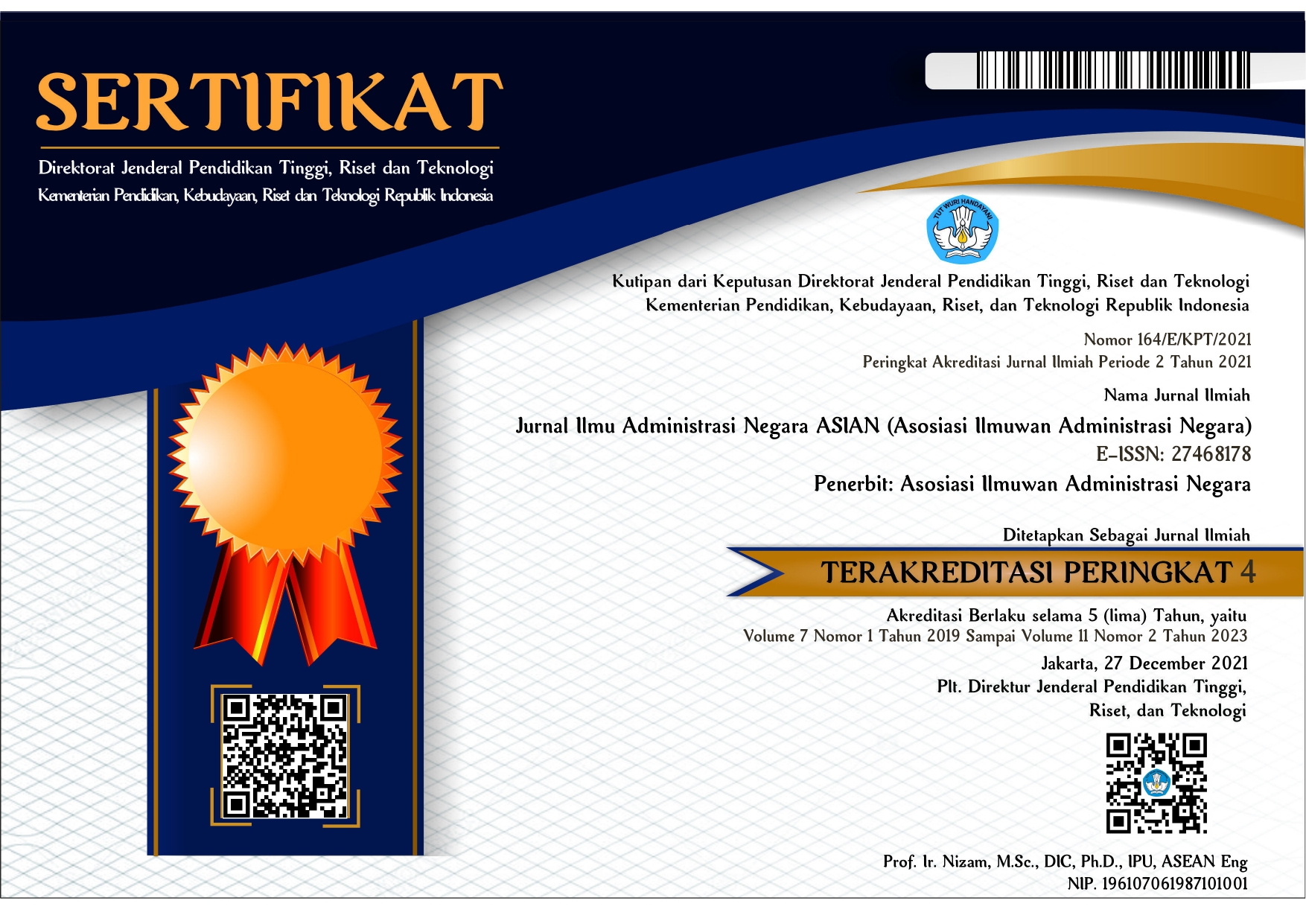Peran Pemerintah Daerah dan Pokdarwis dalam Pengembangan Objek Wisata Air Terjun Curug Lestari di Kabupaten Lampung Tengah
 Abstract views: 543
,
Abstract views: 543
,
 PDF downloads: 630
PDF downloads: 630
Abstract
Tourism as one of the potential sources to be able to improve the economy and community welfare through activities in the form of managing and utilizing the potential of tourist attractions, there is an important element of concern in the development of tourism, namely the role of parties who have an interest in tourism, namely local governments and tourism-conscious community groups. Local governments and tourist conscious groups (pokdarwis) are the main keys to how a tourist attraction can progress and develop well if these two parties can implement their role to the maximum. The problem that will be studied in this study is related to how the role of local governments and tourism conscious groups in developing Curug Lestari waterfall attractions. This research is qualitative research with a descriptive approach with data collection techniques, namely observation, interview and documentation. Based on research that has been done it was found that local governments and pokdarwis have not been able to fully contribute and carry out their roles for the development of Curug Lestari tourist attractions. This leads to the development of Curug Lestari tourist attractions both in terms of development, improvement of road infrastructure, not been seen well. The existence of obstacle factors experienced by both parties is also the cause of the lack of maximum implementation of their role.
Downloads
References
Febrina, R. P., Suharyono, S., & Wi Endang NP, M. G. (2017). Dampak Pengembangan Objek Wisata Ndayung Rafting Terhadap Sosial Budaya dan Ekonomi Masyarakat (Studi Pada Masyarakat Desa Gubugklakah Kec. Poncokusumo Kab. Malang). Jurnal Administrasi Bisnis, 45(1), 179-187.
Hardani, H.A. (2020). Metode Penelitian Kuantitatif dan Kualitatif. Yogyakarta: Penerbit CV Pustaka Ilmu.
I. P. (2019). Dampak Ekonomi Pengembangan Daya Tarik Wisata “Hot Spring” Di Kecamatan Marobo, Kabupaten Bobonaro, Timor-Leste. Jurnal Destinasi Pariwisata, 7(2), 226-230.
Kairupan, S. B., & Mandagi, M. (2019). Peran Pemerintah dalam Pengelolaan Objek Wisata di Kecamatan Pineleng Kabupaten Minahasa. Jurnal Administro. IAN FIS UNIMA
Medi, R., Yamin, M., & Sakawati, H. (2018). Peran Pemerintah Daerah Dalam Pengelolaan Potensi Pariwisata Religi Buntu Burake di Kabupaten Tana Toraja (Doctoral dissertation, Universitas Negeri Makassar
Mellu, M. R., Besie, J. L., & Bunga, T. T. (2018). Analisis Faktor Penunjang dan Penghambat Pengembangan Objek Wisata (Studi Pada Objek Wisata Alam Bola Palelo, Kecamatan Mollo Tengah, Kabupaten Timor Tengah Selatan). Journal of Management: Small and Medium Enterprises (SMEs), 7(2), 269-286.
Nugrahani, F., & Hum, M. (2014). Metode Penelitian Kualitatif. Solo: Cakra Books.
PP 50 Tahun 2011 Tentang Rencana Induk Pembangunan Kepariwisataan Nasional.
Pradana, G. Y. K. (2019). Sosiologi Pariwisata. Bali: Stpbi Press.
Riyadi., & Deddy Supriyadi Bratakusumah. 2002. Perencanaan Pembangunan Daerah Strategi Menggali Potensi dalam Mewujudkan Otonomi Daerah. Jakarta: Gramedia Pustaka Utama.
Soekanto, Soerjono. 2002. Sosiologi Suatu Pengantar. Jakarta: PT. Raja Grafindo Persada.
Syani, Abdul. 2015. Sosiologi Skematika, Teori dan Terapan. Jakarta: PT. Bumi Aksara.
Copyright (c) 2022 Jurnal Ilmu Administrasi Negara ASIAN (Asosiasi Ilmuwan Administrasi Negara)

This work is licensed under a Creative Commons Attribution-ShareAlike 4.0 International License.
Authors who publish with this journal agree to the following terms:
1. Copyright on any article is retained by the author(s).
2. The author grants the journal, right of first publication with the work simultaneously licensed under a Creative Commons Attribution License that allows others to share the work with an acknowledgment of the work’s authorship and initial publication in this journal.
3. Authors are able to enter into separate, additional contractual arrangements for the non-exclusive distribution of the journal’s published version of the work (e.g., post it to an institutional repository or publish it in a book), with an acknowledgment of its initial publication in this journal.
4. Authors are permitted and encouraged to post their work online (e.g., in institutional repositories or on their website) prior to and during the submission process, as it can lead to productive exchanges, as well as earlier and greater citation of published work.
5. The article and any associated published material is distributed under the Creative Commons Attribution-ShareAlike 4.0 International License








